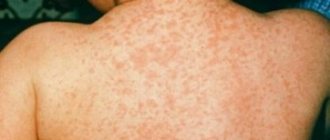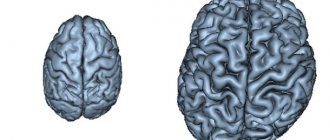Dissocial personality disorder, when a person achieves his goals through other people, completely ignoring their desires and needs, has the opposite side - schizoid disorder. Alienation, excessive theorization of the world, isolation and complete indifference to other people's thoughts and feelings are characteristic signs of a schizoid.
Often such a representative is called “eccentric”, “strange”, “out of this world”. But the schizoid himself does not care about this, since he is guided only by his own opinion or the point of view of authoritative sources and books.
People with this personality disorder exhibit emotional coldness and indifference. They are cut off from the real world and prefer to spend time alone rather than surrounded by many people. They are often immersed in their own fantasies and thoughts.
We can say that some brilliant minds of past centuries were of the schizoid type, since they often distanced themselves from social balls and rendezvous, only to immerse themselves in their own creations and the implementation of their ideas. They are often interested in physics, mathematics, astronomy, and reading books. They have unconventional thinking and a unique view of the world. Everything they have is subordinated to isolation from society and the desire to be as far away from others as possible.
Schizoid child
Schizoid disorder, as already indicated in the table of contents of the section of the online magazine psytheater.com, often manifests itself in early childhood. Such a child prefers to play calm and quiet games, isolates himself from other people, is silent and listens more than he speaks. This disorder should be distinguished from a similar autistic disorder. A schizoid child grows up full and healthy, without any deviations other than certain behavioral tendencies. An autistic person has deviations in speech, worldview and other simple skills.
A child of the schizoid type shows excessive tolerance and emotional restraint. However, he rarely shares his own experiences with his parents.
go to top
Mikhail B., 18 years old. The only son. Since childhood, his mother and grandmother overprotected him. Mother and father divorced two years ago. My father was a drunkard and a year ago he committed suicide during a binge. He suffered his father's death calmly - he was very attached to his mother. I was used to sharing everything with her - even sexual experiences. At school all the years I studied only “excellently”. As a child, his mother sent him to a figure skating club - nothing worked out. The coach advised me to change the sport. At the age of 11, at the insistence of his mother, he began skiing - he found great success as a long-distance racer. After graduating from high school, he decided to become an officer. The life of a military man was attractive because of its “regime and order.” Soon he became the best cadet and successfully continued his skiing. In his 2nd year, he was simultaneously nominated for a Lenin scholarship and for a very important skiing competition. He was repeatedly invited to the leadership of the school, to various city public organizations, where they talked with him, appealing to his sense of responsibility, and talked about the honor that he had to defend. On the same days I fell ill with the flu. During his illness, a fear arose that he would not justify the trust placed in him. I began to spend hours obsessively thinking about my shortcomings and ways to overcome them. He began to attribute his “weakness of will” to masturbation, as well as improper upbringing - his mother and grandmother did not teach him to be independent, they looked after him in everything. Obsessive reasoning began to interfere with exercise and continued even while skiing. Sleep has worsened - it has become difficult to fall asleep due to obsessive thoughts. He turned to a psychiatrist for help.
During the conversation, he spoke in detail and willingly about himself. From the first grades of school, I noticed a tendency to “self-examination.” He is very indecisive in small things and, on the contrary, sometimes makes decisions very quickly in vital issues. For example, I once spent two hours in the store choosing swimming trunks for training in the pool. But I made the decision about where to go to study after school “immediately” on the advice of my ski coach. Since childhood, he was painfully worried about his mother. I rushed about if I was late from work. When walking along the street, I tried not to step on “the stripes between the stone slabs” (so that “everything would be fine, so that none of my loved ones would die”). From the age of 14, sexual fantasies appeared. Before going to bed, I brought myself to orgasm with them. Then he reproached himself for his “debauchery” and longed to get rid of them. He willingly succumbed to rational dissuasion. I accepted the advice to concentrate entirely on my studies and engage in sports for my health, avoiding important competitions.
Physical development with acceleration.
During a pathological characterological examination using PDO, a psychasthenic type was diagnosed on an objective assessment scale. A high level of frankness was noted. Self-esteem is good: according to the subjective assessment scale, psychasthenic traits are noted, unstable traits are rejected.
Diagnosis. A neurotic reaction of the type of obsessive neurosis against the background of obvious psychasthenic accentuation.
Catamnesis. Collected after 5 years. He graduated with honors from a higher educational institution and remained as a teacher there. Married, has a child.
Schizoid type. From the first years, such children love to play alone. They are little attracted to their peers, avoid fuss and noisy fun, prefer the company of adults, silently listening to their conversations among themselves for a long time.
To this may be added some kind of unchildish restraint and even coldness.
During adolescence, all the features of the schizoid type become extremely acute. First of all, isolation and isolation are striking. Sometimes spiritual loneliness is of little burden to a teenager who lives by his own, unusual for others, interests and hobbies. More often, the inability to establish contacts is difficult to experience. Unsuccessful attempts to find a friend to your liking, mimosa-like sensitivity in such searches, rapid exhaustion in contact (“I don’t know what to talk about”) encourage even greater withdrawal into oneself.
Closedness is combined with shortcomings of intuition - the inability to guess what others have not said out loud, to guess their desires, to feel their experiences, hostility towards oneself or, conversely, sympathy and disposition, to grasp the moment when one should not impose one’s presence. The lack of intuition is accompanied by the inability to empathize: to respond to the joy or sadness of another, to understand someone else’s offense, to respond to worry and anxiety. Weakness of intuition and empathy creates the impression of coldness and callousness. Some actions may seem cruel, but they are associated with an inability to empathize with the suffering of others, and not with a desire to receive sadistic pleasure.
The inner world is almost always closed to outsiders and is often filled with fantasies and hobbies. Schizoid teenagers can open up unexpectedly and usually in front of a person unfamiliar, even random, but with something that appeals to their whimsical choice. At the same time, their inner experiences may forever remain hidden from loved ones or from those whom they have known for many years.
The inaccessibility of the inner world and restraint in the manifestation of feelings make many actions unexpected and incomprehensible to others, because the entire course of previous experiences and motives remains hidden. Eccentricities are unexpected, but do not serve the egocentric purpose of attracting attention to themselves.
The teenage reaction to emancipation usually manifests itself in a very peculiar way. A schizoid teenager can tolerate petty supervision in everyday life and not even notice it, obey the established routine and regime, but is ready to react with violent protest to the slightest attempt to invade the world of his interests, hobbies and fantasies without permission. However, the reaction of emancipation can easily turn into social nonconformity - indignation at existing rules and orders, ridicule of common ideals, interests and spiritual values, rancor over the “lack of freedom.” Such judgments are secretly nurtured for a long time and, unexpectedly for everyone, are implemented in decisive actions or public speeches. Direct criticism of others in such cases is carried out without taking into account its consequences for oneself.
The reaction of grouping with peers is weakly expressed outwardly. Closedness makes contacts difficult, and intractability to influence from outside does not allow one to merge with the group. Sometimes schizoid teenagers are ridiculed and persecuted by their peers, but sometimes, thanks to cold restraint and an unexpected ability to stand up for themselves, they inspire respect and are forced to keep their distance. However, success among peers may be the subject of the innermost fantasies of a schizoid teenager.
Hobbies are often unusual, strong and persistent. They often hide their hobbies from others, fearing misunderstanding and ridicule. They share them when they meet interest, but never show them off. Intellectual and aesthetic hobbies are common. In sports, they prefer individual activities, but not group games. Hobbies can take the place of lonely long walks. Some schizoids are good at fine manual skills: playing musical instruments, all kinds of crafts. In addition to the main hobby, you can find a number of side hobbies, but somehow related to it. For example, a schizoid teenager who is fond of chess simultaneously collects portraits of all the great people who loved chess and collects biographies of all famous chess players. According to Yu. A. Skrotsky [Patocharacterological studies..., 1981], the study of biographies is often especially attractive to schizoids.
psychasthenic teenagers – previous | the next one is schizoid accentuation
Adolescent psychiatry. Content.
Schizoid teenager
During adolescence, signs of the disorder become more obvious. The schizoid withdraws more and more into his own world, fencing himself off from those around him. He is dismissive and even somewhat hostile to any hobbies that interest other teenagers.
Although a schizoid teenager gravitates toward communication and making friends in his life, he does not know how to establish a common language and maintain relationships for a long time. He either fails to make a friend, or their friendship quickly breaks down, since a person with this type of disorder does not know how to show feelings and skills that correspond to healthy people.
So, a schizoid cannot sympathize. He does not understand when to support, and when to advise something, when to sympathize, and when to distract him from sad thoughts. To some extent, he shows cruelty in his behavior towards others. This should not be confused with the epileptoid personality, who takes sadistic pleasure from the suffering of other people.
The following types of schizoid disorder are distinguished:
- Sensitive – sensitive, weak, vulnerable, does not perceive disharmony well. He runs away from any difficulties and difficulties into his inner world.
- Expansive - fearless, decisive, unshakable, indifferent to others. Although they can be vulnerable. In case of difficulties, they close themselves off from the world by fantasizing or engaging in intellectual games.
go to top
Signs and symptoms of the disorder
Clinical signs of schizoid disorder are not always the same, since individuals are formed under the influence of different environmental factors. A person with SPD may have the following traits:
- decreased or lack of emotional understanding – weak empathy;
- is more respectful of other people's personal boundaries;
- interests and hobbies are related to solitude;
- reluctance to maintain active social contacts;
- care little about the opinions of others, but prefer honesty, pragmatism, and sincerity;
- does not like excessive attention;
- prefers non-contact forms of communication;
- does not tolerate talking about “nothing”, lies, hysterics;
- self-sufficiency in introversion, loneliness, isolation;
- tendency towards introspection - “immersion in oneself”;
- awkwardness, discomfort in the presence of a large number of people;
- a tendency to choose theoretical, exact professions, as well as those related to art and philosophy;
- non-standard, eccentric behavior - a strange choice of clothing for most, indifference to praise or criticism, a different perception of banal things from others;
- less sensitive - physical touch does not bring much pleasure;
- often, but not always, a weak sexual constitution, low sexual activity;
- there is no paranoia, distorted perceptions or cognitive impairment.
Social distancing is seen as a protective mechanism. People of this type often have a richer world of their own fantasies, developed abstract thinking, and a special perception of things invisible to others. They often prefer the company of animals, solitude in nature, and quiet places to live. A striking example of schizoid personalities are the following characters: Sherlock Holmes, Gregory House or Batman.
In men
Such men give the impression of being dispassionate loners, devoid of a sense of humor. At the same time, they are able to maintain a sufficient level of social activity, which is required for work or normal life activities.
Unlike autistic disorders, schizoids understand the emotions and feelings of other people, but do not strive for them, as they experience discomfort.
Outwardly “cold” behavior does not mean a lack of desire for at least minimal affection. Schizoids rarely marry, but from time to time they can find partners who respect their emotional boundaries. At the same time, they are more sensitive to separation, experience it more acutely and longer.
Among women
According to Russian guidelines, the schizoid personality type is half as common in women as in men (1:2). American classifiers (DSM-IV, DSM-5) do not provide reliable epidemiological data. The exact prevalence of SPD in the population is unknown, let alone the strong gender differences.
Schizoid women are full of contradictions. Feeling self-sufficient in their detachment, they may need a partner. On the surface they are unemotional, but inside they are impulsive, bright, imaginative personalities.
The priority in the life of such girls is not marriage, but personal comfort. They choose calm men or women who respect introversion. Often, schizoid individuals prefer impersonal sexual contacts by agreement, not allowing anyone to approach their inner “I”.
Success and social adaptation of schizoids
A schizoid can adapt socially if the signs of his disorder are not pronounced. In this case, a person may have 1-2 distant friends with whom he is comfortable and interested. But there is often a lack of strong attachment to people. At the same time, representatives with this disorder can be very successful.
If they manage to find a job that does not involve communicating with people, they can become professionals in their field. Since they are immersed in the process of work, rarely focus on results and are not distracted by various friendly gatherings, they develop their knowledge and skills in the area in which they are engaged.
Causes
It is impossible to identify the exact reasons for the formation of a schizoid personality type; research is still ongoing. The following risk factors are expected:
- genetic, that is, congenital, characteristics of the individual;
- the presence of any mental spectrum disorders in close relatives - the theory of hereditary predisposition;
- environmental factors - social status, local mentality, characteristics of growing up;
- the nature of the relationship of parents or guardians to the child in the process of personality formation;
- the cumulation of experiences from early childhood to the present - stress, fear, loneliness, neglect from others, any type of violence.
It is not possible to talk about a single etiology, since the topic remains poorly studied even in a professional environment. Therefore, you should not specifically look for the most “convenient” reasons that explain the characteristics of a particular person.
Each clinical case should be reviewed by a psychiatrist, who will be able to determine the individual set of prerequisites that served as the impetus for the formation of SPD.











